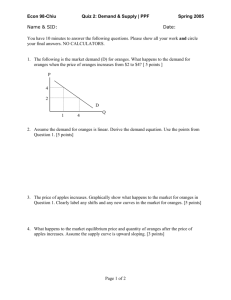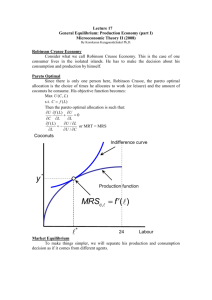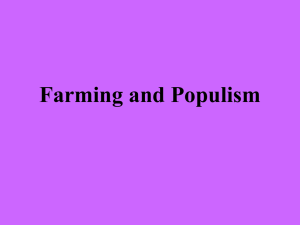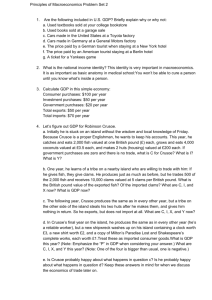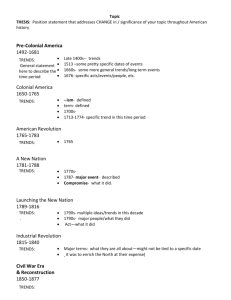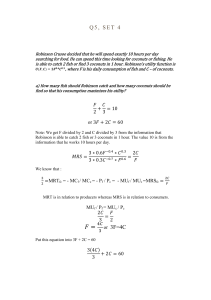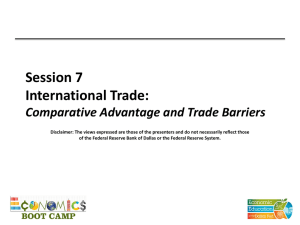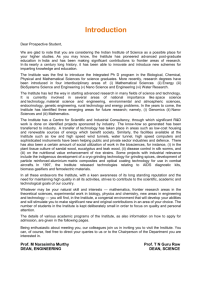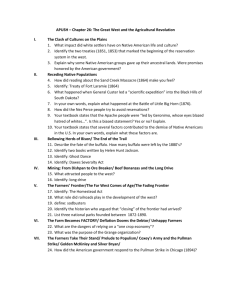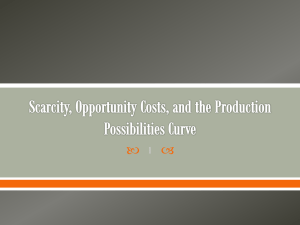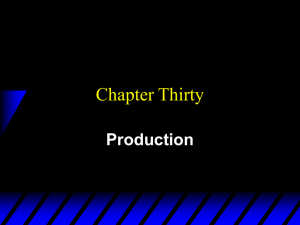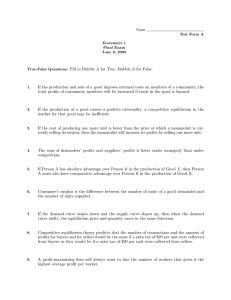Comparative and Absolute Advantages
advertisement
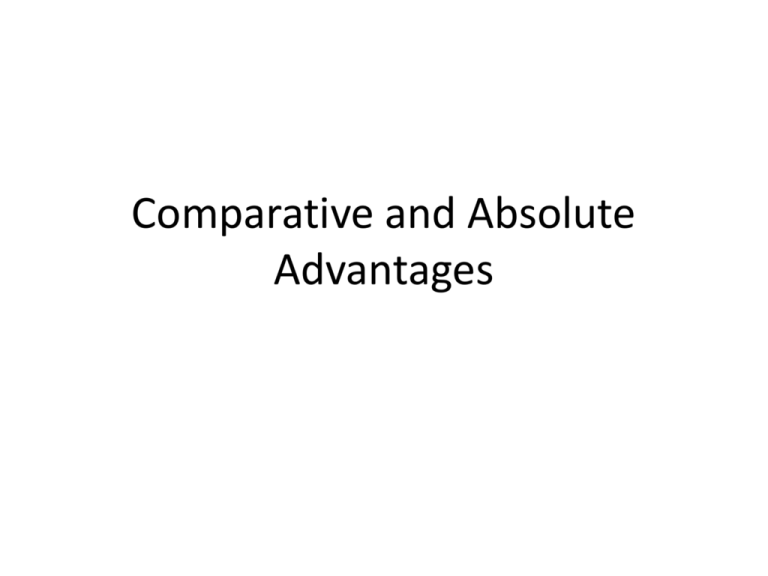
Comparative and Absolute Advantages Question 1 In one hour, Robinson Crusoe can either catch 7 fish or collect 3 coconuts, and his companion Friday can either catch 8 fish or collect 4 coconuts. What does the law of comparative advantage imply about specialization in this case? • a) Friday should do all the work. b) Crusoe should catch fish, and Friday should collect coconuts. c) Crusoe should collect coconuts, and Friday should catch fish. d) Crusoe should trade, but Friday should refuse. e) Crusoe should work extra hard so that he will not exploit Friday. Question 2 From an economic-efficiency point of view, the basic problem with tariffs and quotas is that they cause: a) the world as a whole to be inside its productionpossibilities frontier, though each nation individually may be on its frontier. b) the world as a whole to be inside its productionpossibilities frontier because each nation will be inside its national production frontier. c) the rich to get too much relative to the poor. d) too much of the protected goods to be produced worldwide and too little of the unprotected goods to be produced. Question 3 The idea of comparative advantage is based on: a) b) c) d) game theory. opportunity cost. tax incidence. property rights. Question 4 Crusoe can either gather three coconuts a day or catch six fish. Friday can either gather six coconuts a day or catch six fish. Which of the following positions will be below their combined production-possibilities frontier a) b) c) d) Nine coconuts and zero fish. Twelve fish and zero coconuts. Three coconuts and six fish. All of the above are inside. Question 5 • Robinson has the following production-possibilities frontier: Oranges 3 2 1 0 • a) b) c) d) Clams 0 4 7 9 If he is producing two oranges, what is his opportunity cost of the third orange? Two clams Three clams Four clams There is no cost unless he is using money. Question 6 • . With specialization and exchange: a) the rich get richer and the poor get poorer. b) the poor get richer and the rich get poorer. c) people can move their consumptionpossibilities frontier beyond their productionpossibilities frontier. d) people can move their production-possibilities frontier beyond their consumption-possibilities frontier Question 7 • Which explanation of a quota on foreign products would make the most sense to an economist? a) b) c) d) The quota is a useful way to raise government revenue, and because governments always can spend more, quotas are common. Quotas protect consumers from unfair competition, and the government establishes them as part of consumer protection. Quotas harm consumers but help producers, and they can exist when producers have more political clout than consumers. Quotas make no sense to economists and they have no explanation of why they exist
